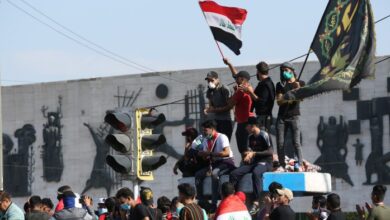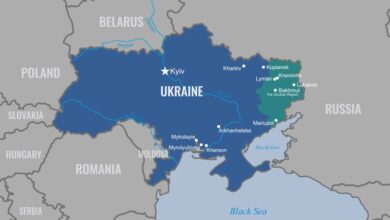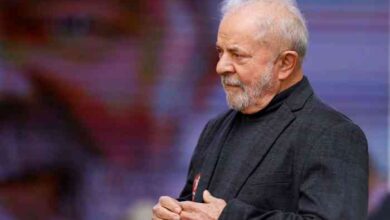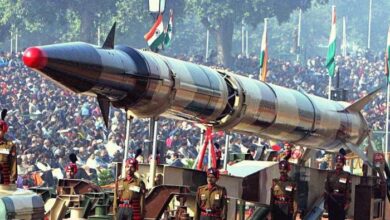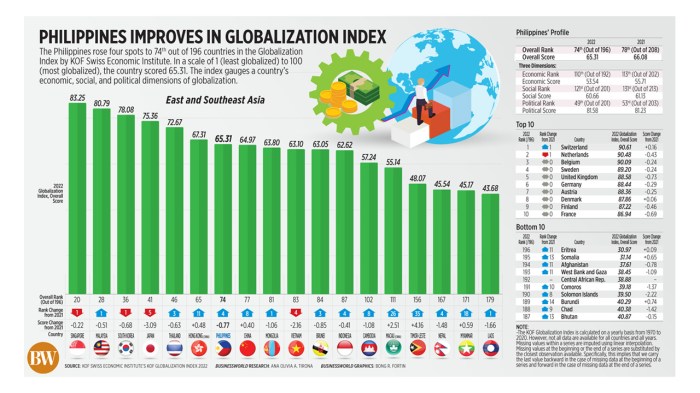
The Role of the United Nations: A Global Force
The Role of the United Nations: A Global Force, is a topic that has been debated for decades. The UN is an international organization that was founded after World War II with the goal of preventing future wars and promoting peace and cooperation among nations.
However, the UN has faced many challenges over the years, and its effectiveness has been questioned. Despite these challenges, the UN remains an important force for good in the world, and its work continues to be relevant in the 21st century.
The UN’s role is multifaceted, encompassing a wide range of activities from peacekeeping and humanitarian aid to promoting sustainable development and human rights. Its impact can be seen in various corners of the globe, addressing conflicts, alleviating poverty, and striving for a more equitable world.
The organization’s structure and governance, however, are complex and often criticized for their limitations. This complexity arises from the need to balance the interests of its 193 member states, each with its own unique perspectives and priorities.
Historical Context
The United Nations (UN) is an intergovernmental organization that was established in 1945 after the devastation of World War II. It was founded with the aim of maintaining international peace and security, promoting human rights, and fostering cooperation among nations.
The UN’s origins can be traced back to the League of Nations, an international organization established in 1920 after World War I. The League was intended to prevent future wars by promoting international cooperation and disarmament, but it ultimately failed to achieve its goals due to several factors, including the lack of enforcement mechanisms and the absence of major powers like the United States.
The Origins of the United Nations
The idea of establishing a new international organization after World War II was first proposed by US President Franklin D. Roosevelt in 1941. The UN Charter was drafted by representatives from 50 countries at the United Nations Conference on International Organization in San Francisco in 1945.
The UN Charter was signed by the representatives of 51 countries on June 26, 1945, and the UN officially came into existence on October 24, 1945, with 51 member states.
Motivations for the UN’s Establishment, The role of the united nations
The establishment of the UN was driven by a number of factors, including:* The desire to prevent another world war:The horrors of World War II, which claimed tens of millions of lives, made it clear to the world leaders that something needed to be done to prevent future conflicts.
The need for international cooperation
The war had demonstrated the importance of international cooperation in solving global problems.
The promotion of human rights
The atrocities committed during the war highlighted the need for a system to protect human rights and prevent future abuses.
Comparison to the League of Nations
The UN was founded on similar principles to the League of Nations, but it had several key differences:* The UN had a stronger enforcement mechanism:The UN Security Council, composed of 15 members, has the power to authorize military action to maintain international peace and security. The League of Nations had no such enforcement mechanism.
The UN had broader membership
The United Nations, as a global organization, plays a crucial role in addressing various challenges, from poverty and hunger to conflict and climate change. However, its effectiveness is often debated, especially in the context of globalization and the rise of neoliberal policies.
To understand the complexities of this debate, it’s essential to have a solid grasp of what neoliberalism entails, which you can find in this primer on neoliberalism. Ultimately, the role of the United Nations in a world shaped by neoliberalism is a subject that demands continued critical analysis and discussion.
The League of Nations was dominated by European powers, while the UN includes a wider range of countries, including those from Africa, Asia, and Latin America.
The UN had a greater focus on human rights
The UN Charter includes a Universal Declaration of Human Rights, which was not part of the League of Nations’ charter.The UN has faced many challenges since its inception, but it has also achieved many successes. It has helped to prevent major wars, promote human rights, and address global issues such as climate change and poverty.
Core Functions and Objectives: The Role Of The United Nations
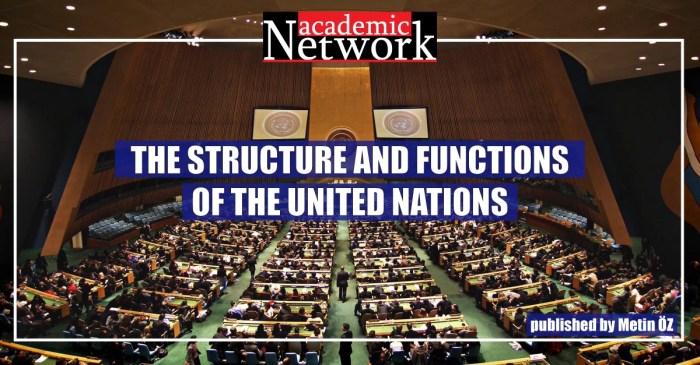
The United Nations, established in 1945 after the devastation of World War II, is a global organization committed to promoting international cooperation and addressing shared challenges. Its core functions and objectives are designed to ensure a more peaceful, prosperous, and just world for all.
Maintaining International Peace and Security
The UN’s primary responsibility is to maintain international peace and security. This objective is enshrined in its Charter, which Artikels a comprehensive framework for preventing and resolving conflicts. The UN employs various mechanisms to achieve this, including:
- Peacekeeping operations:The UN deploys peacekeeping missions to conflict zones to monitor ceasefires, protect civilians, and facilitate peace negotiations. These missions are often composed of military personnel, police officers, and civilian experts from member states. Examples include the UN peacekeeping mission in South Sudan (UNMISS) and the UN peacekeeping mission in the Democratic Republic of the Congo (MONUSCO).
- Diplomatic efforts:The UN facilitates dialogue and negotiations between conflicting parties to prevent conflicts from escalating or to resolve existing disputes. The UN Secretary-General plays a key role in these efforts, often acting as a mediator or facilitator.
- Sanctions:The UN Security Council can impose sanctions on countries or individuals involved in conflict or human rights abuses. These sanctions can include travel bans, asset freezes, and arms embargoes. The UN imposed sanctions on North Korea in response to its nuclear weapons program.
Promoting Sustainable Development
The UN recognizes that sustainable development is essential for achieving lasting peace and security. This objective is reflected in the 2030 Agenda for Sustainable Development, which Artikels 17 Sustainable Development Goals (SDGs). The UN works to promote sustainable development through:
- Supporting developing countries:The UN provides technical and financial assistance to developing countries to help them achieve the SDGs. This includes programs to promote economic growth, improve education and healthcare, and protect the environment. The UN Development Programme (UNDP) is a key agency in this effort.
- Advocating for global action:The UN raises awareness about the challenges of sustainable development and mobilizes global action to address them. This includes convening conferences, issuing reports, and promoting partnerships between governments, businesses, and civil society. The UN Climate Change Conference (COP) is an example of a global platform for addressing climate change.
- Monitoring progress:The UN monitors progress towards the SDGs and provides regular reports on global trends. This data helps to identify areas where more action is needed and to track the impact of UN efforts.
Promoting Human Rights
The UN is committed to promoting and protecting human rights for all. The Universal Declaration of Human Rights, adopted in 1948, lays the foundation for this objective. The UN works to promote human rights through:
- Setting international standards:The UN has developed a comprehensive body of international human rights law, including treaties, conventions, and declarations. These instruments establish standards for the protection of human rights and provide a framework for accountability. The Convention on the Elimination of All Forms of Discrimination Against Women (CEDAW) is an example of a key human rights treaty.
- Monitoring human rights violations:The UN has several human rights mechanisms, including independent experts, special rapporteurs, and human rights treaty bodies, which monitor human rights violations around the world. These mechanisms investigate allegations of abuses, report findings, and make recommendations to governments.
- Providing assistance to victims of human rights violations:The UN provides assistance to victims of human rights violations, including legal aid, counseling, and support services. The UN High Commissioner for Human Rights (OHCHR) plays a key role in this effort.
Organizational Structure and Governance
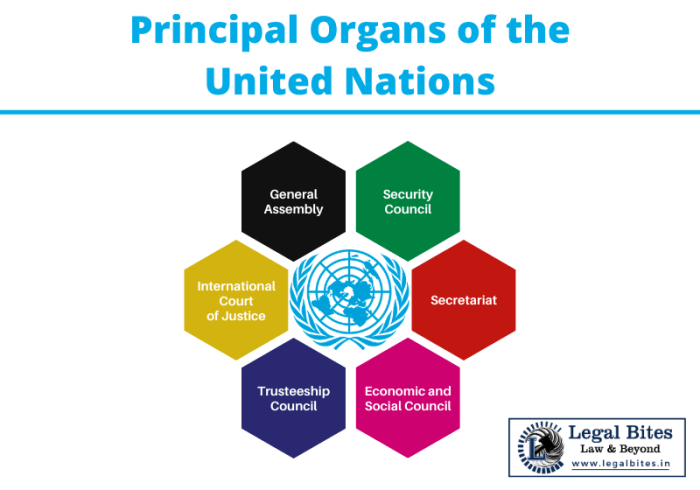
The United Nations (UN) is a complex organization with a multifaceted structure designed to ensure effective global governance. Its organizational framework reflects its diverse membership and the wide range of issues it addresses. This section explores the key organs of the UN, the decision-making processes, and the role of member states in shaping the organization’s direction.
Major Organs of the UN
The UN’s structure comprises six principal organs, each with distinct responsibilities and powers.
- General Assembly: The main deliberative organ of the UN, composed of all 193 member states. It discusses a wide range of international issues, makes recommendations, and approves the UN’s budget. Each member state has one vote, and decisions are typically made by a two-thirds majority vote.
- Security Council: Responsible for maintaining international peace and security. It has 15 members, including five permanent members (China, France, Russia, the United Kingdom, and the United States) with veto power, and ten non-permanent members elected for two-year terms. The Council can impose sanctions, authorize military action, and make binding decisions on matters of international peace and security.
- Economic and Social Council (ECOSOC): Coordinates the economic and social work of the UN. It has 54 members elected for three-year terms. ECOSOC promotes international cooperation on economic, social, and environmental issues, and works with specialized agencies like the World Health Organization (WHO) and the United Nations Children’s Fund (UNICEF).
- International Court of Justice (ICJ): The UN’s principal judicial organ, based in The Hague, Netherlands. It settles legal disputes between states and provides advisory opinions on legal matters. The Court’s judgments are binding on the states involved in the case.
- Secretariat: The UN’s administrative body, headed by the Secretary-General. The Secretariat provides administrative support to the other organs, implements decisions, and carries out day-to-day operations. The Secretary-General is appointed by the General Assembly on the recommendation of the Security Council, and serves a five-year term.
- Trusteeship Council: Established to oversee the administration of territories that were not yet self-governing. Its role has diminished since the decolonization process, and it currently has no active territories under its supervision. The Council meets only when necessary.
Decision-Making Processes
The UN’s decision-making processes are complex and often involve negotiation and compromise among member states.
The United Nations, a global organization striving for peace and development, faces a complex landscape where corporate power plays a significant role. Understanding the influence of corporations, as highlighted in corporate power facts and stats , is crucial for the UN to effectively address global challenges.
By analyzing the impact of corporations on various sectors, the UN can better navigate the complex relationship between global governance and private enterprise.
- General Assembly: Decisions are typically made by a simple majority vote, except for important matters like budget approval, which require a two-thirds majority. The Assembly also uses consensus-building processes, where decisions are reached without formal voting.
- Security Council: The Council’s decisions are binding on all UN member states. However, the veto power held by the five permanent members can prevent the Council from taking action. This has been a source of controversy, as it can be used to block action on issues of international concern.
- Other Organs: The ICJ’s decisions are binding on the states involved in the case. The ECOSOC and other specialized agencies have their own decision-making processes, which typically involve voting or consensus-building.
Role of Member States
Member states are the foundation of the UN, and their participation is essential for the organization’s effectiveness.
- Representation: Each member state has one vote in the General Assembly, ensuring equal representation for all countries, regardless of size or power.
- Financial Contributions: Member states contribute financially to the UN budget, with assessments based on their economic capacity. This funding enables the UN to carry out its work.
- Policy Influence: Member states participate in the UN’s decision-making processes, influencing the organization’s policies and actions. This can involve negotiation, lobbying, and forming alliances with other states.
- Compliance: Member states are expected to comply with UN resolutions and decisions, although enforcement mechanisms are limited. The UN relies on the cooperation of member states to achieve its goals.
Achievements and Successes
The United Nations, despite facing numerous challenges, has achieved remarkable successes across its various areas of operation. From peacekeeping missions to promoting sustainable development and safeguarding human rights, the UN has left a lasting impact on the global landscape. This section will explore some of the most notable achievements of the UN, highlighting its positive contributions to the world.
Peacekeeping Operations
The UN has played a pivotal role in maintaining international peace and security through its peacekeeping operations. Since 1948, the UN has deployed over 100 peacekeeping missions across the globe. These missions aim to prevent conflict, protect civilians, and support peace processes.
- United Nations Mission in South Sudan (UNMISS):Established in 2011, UNMISS has been instrumental in protecting civilians and supporting the implementation of the peace agreement in South Sudan. The mission has provided humanitarian assistance, facilitated dialogue, and monitored human rights violations.
- United Nations Peacekeeping Force in Cyprus (UNFICYP):Deployed in 1964, UNFICYP has helped to maintain the ceasefire between Greek Cypriots and Turkish Cypriots. The mission has also contributed to the peaceful resolution of disputes and promoted intercommunal cooperation.
Sustainable Development
The UN has been at the forefront of promoting sustainable development through its various initiatives and programs. The UN’s commitment to sustainable development is reflected in the 2030 Agenda for Sustainable Development, which Artikels 17 Sustainable Development Goals (SDGs).
The United Nations plays a crucial role in global security and diplomacy, often mediating conflicts and promoting international cooperation. One of the most pressing issues facing the international community is the threat posed by north korea and nuclear weapons.
The UN has been actively involved in efforts to denuclearize the Korean Peninsula and prevent the proliferation of weapons of mass destruction. The UN’s role in this complex situation is vital to ensuring international peace and stability.
- Millennium Development Goals (MDGs):The MDGs, adopted in 2000, aimed to address poverty, hunger, disease, illiteracy, and environmental degradation. The MDGs achieved significant progress in reducing poverty, improving access to education and healthcare, and promoting gender equality.
- Sustainable Development Goals (SDGs):Building upon the MDGs, the SDGs were adopted in 2015 to address a wider range of global challenges. The SDGs aim to achieve a more sustainable and equitable future for all by 2030.
Human Rights and Humanitarian Aid
The UN is dedicated to promoting and protecting human rights and providing humanitarian assistance to those in need. The Universal Declaration of Human Rights (UDHR), adopted in 1948, is a landmark document that Artikels the fundamental rights of all human beings.
- Office of the High Commissioner for Human Rights (OHCHR):The OHCHR is the UN’s leading body for promoting and protecting human rights. The OHCHR works to raise awareness of human rights issues, provide technical assistance to countries, and investigate human rights violations.
- United Nations High Commissioner for Refugees (UNHCR):UNHCR is responsible for protecting refugees and stateless persons. The UNHCR provides humanitarian assistance, promotes solutions to refugee problems, and advocates for the rights of refugees.
- World Food Programme (WFP):The WFP is the leading humanitarian organization fighting hunger worldwide. The WFP provides food assistance to millions of people affected by conflict, natural disasters, and poverty.
Challenges and Criticisms
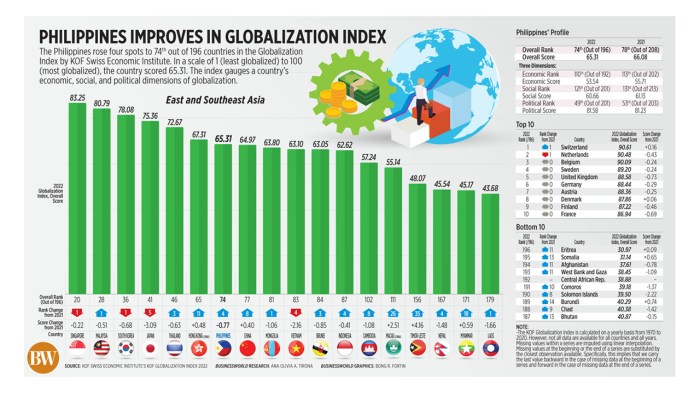
The United Nations, despite its ambitious goals and significant achievements, faces a number of challenges and criticisms that impact its effectiveness in addressing global issues. These challenges stem from the organization’s structure, the nature of the issues it confronts, and the complexities of international relations.
Limitations of the UN Security Council
The UN Security Council, responsible for maintaining international peace and security, is often criticized for its structure and decision-making process.
- Permanent Members’ Veto Power:The five permanent members (United States, Russia, China, France, and the United Kingdom) have veto power, which allows them to block any resolution, even if it enjoys the support of the other members. This has been a source of controversy, particularly when permanent members have used their veto to protect their own interests or those of their allies, even when those interests conflict with international law or the principles of the UN Charter.
- Lack of Representation:The composition of the Security Council reflects the power dynamics of the world at the end of World War II, but does not accurately represent the current global power balance. The permanent members are all from the Global North, while many countries in the Global South feel underrepresented and lack a voice in key decisions.
- Slow and Ineffective Response:The decision-making process in the Security Council can be slow and cumbersome, often hindering timely responses to urgent crises. This can have serious consequences, particularly in situations where swift action is crucial to prevent human suffering or further escalation of conflict.
Financial Constraints and Inefficiency
The UN’s ability to address global challenges is often constrained by financial limitations.
- Funding Dependence:The UN relies heavily on voluntary contributions from member states, which can fluctuate significantly depending on political priorities and economic conditions. This creates uncertainty in funding and can limit the organization’s ability to implement programs effectively.
- Inefficient Spending:The UN has been criticized for bureaucratic inefficiencies and wasteful spending. While efforts have been made to improve financial management, concerns about transparency and accountability remain.
- Unequal Burden Sharing:The financial burden of supporting the UN is not shared equally among member states. Some countries contribute significantly more than others, leading to tensions and resentment.
Effectiveness in Addressing Global Crises
The UN’s response to various global crises has been subject to debate and criticism.
- Limited Success in Conflict Resolution:The UN has been successful in mediating some conflicts, but its efforts to resolve others have been less successful. In some cases, the UN has been criticized for its failure to prevent or stop violence, or for being too slow to react.
For example, the UN’s response to the Rwandan genocide in 1994 was widely seen as inadequate.
- Challenges in Humanitarian Assistance:The UN faces challenges in delivering humanitarian assistance effectively in conflict zones. Access to populations in need can be difficult, and security risks can make it dangerous for aid workers. The UN has also been criticized for its slow response to humanitarian crises, such as the Syrian Civil War.
- Limited Impact on Global Issues:The UN’s ability to address global issues such as climate change, poverty, and inequality has been limited. While the UN has made progress in these areas, critics argue that the organization lacks the authority and resources to implement meaningful change.
Future Role and Relevance
The United Nations (UN) is a dynamic organization that has been constantly evolving to address the changing global landscape. As the world faces new and complex challenges in the 21st century, the UN’s role is more crucial than ever. Its ability to adapt and respond to these challenges will determine its continued relevance and impact on the future.
Evolving Role of the UN
The UN’s role is evolving to address new global challenges. These challenges include climate change, technological advancements, global pandemics, and the rise of new geopolitical dynamics. The UN is increasingly focused on promoting sustainable development, fostering peace and security, and upholding human rights in a rapidly changing world.
Potential Future Challenges and Opportunities
The UN faces numerous challenges in the future, but also significant opportunities to make a positive impact.
Challenges
- Maintaining Peace and Security:Conflict, terrorism, and the proliferation of weapons of mass destruction pose significant threats to global security. The UN will need to adapt its peacekeeping operations and conflict resolution mechanisms to address these evolving threats. The UN faces challenges in addressing the growing complexities of conflict, including the rise of hybrid warfare, the role of non-state actors, and the impact of climate change on conflict dynamics.
- Addressing Climate Change:Climate change is a pressing global challenge that requires coordinated international action. The UN plays a vital role in fostering cooperation on climate change mitigation and adaptation. The UN’s ability to mobilize resources and support developing countries in their efforts to address climate change will be crucial in the coming years.
The UN faces challenges in achieving ambitious climate goals, including securing commitments from all countries, mobilizing financial resources, and addressing the needs of vulnerable communities.
- Promoting Sustainable Development:The UN’s Sustainable Development Goals (SDGs) provide a roadmap for achieving a more sustainable and equitable future. However, achieving these goals requires significant efforts from all stakeholders. The UN faces challenges in mobilizing resources, coordinating international efforts, and ensuring that no one is left behind in the pursuit of sustainable development.
- Responding to Global Pandemics:The COVID-19 pandemic highlighted the need for stronger global health systems and coordinated international responses to health emergencies. The UN plays a critical role in supporting global health initiatives, promoting pandemic preparedness, and ensuring equitable access to vaccines and treatments.
The UN faces challenges in addressing the inequities in global health, strengthening health systems in developing countries, and ensuring that future pandemics are effectively managed.
Opportunities
- Leveraging Technology:Technological advancements can be harnessed to support the UN’s work in areas such as peacekeeping, humanitarian aid, and sustainable development. The UN can leverage technology to improve communication, data analysis, and resource allocation. The UN can also use technology to promote transparency and accountability in its operations.
- Strengthening Partnerships:The UN can strengthen its partnerships with governments, civil society organizations, and the private sector to address global challenges. By working collaboratively, these stakeholders can leverage their collective resources and expertise to achieve greater impact. The UN can foster partnerships that leverage the strengths of different actors and promote a shared vision for a better world.
- Promoting Multilateralism:In a world characterized by rising nationalism and protectionism, the UN plays a vital role in promoting multilateralism. The UN provides a platform for dialogue, cooperation, and consensus-building among nations. By upholding the principles of international law and promoting peaceful conflict resolution, the UN can contribute to a more stable and predictable global order.
Relevance and Significance in the 21st Century
The UN remains a vital institution in the 21st century. It provides a forum for international cooperation and a platform for addressing global challenges.
- Global Governance:The UN serves as a key pillar of global governance, providing a framework for international law, diplomacy, and cooperation. It plays a crucial role in promoting peace and security, addressing global challenges, and upholding human rights.
- Humanitarian Aid:The UN is a leading provider of humanitarian assistance, responding to natural disasters, conflicts, and other emergencies around the world. The UN’s humanitarian agencies provide vital aid to millions of people in need, saving lives and alleviating suffering.
- Sustainable Development:The UN’s Sustainable Development Goals (SDGs) provide a universal framework for achieving a more sustainable and equitable future. The SDGs address a wide range of issues, including poverty, hunger, inequality, climate change, and environmental degradation. The UN’s commitment to the SDGs demonstrates its relevance and its ability to address the most pressing challenges facing humanity.

